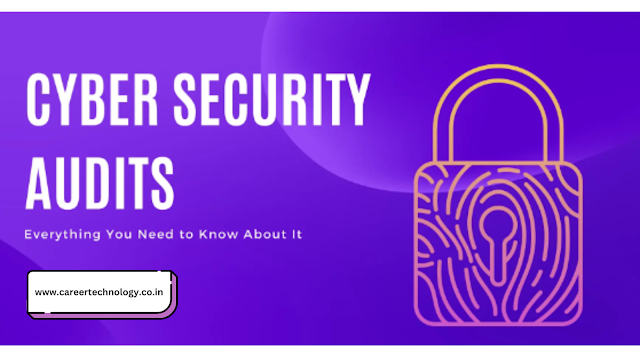Cyber Security Audits
Cyber Security Audits
What is Cyber Security Audit?
A cyber audit, at its core, refers to a systematic evaluation and assessment of an organization's information systems. This evaluation is designed to identify potential vulnerabilities, non-compliance with standards, and areas of improvement in both technology and processes, all with the aim of safeguarding digital assets against potential threats. Cyber audits delve deeply into the organization's technological infrastructure, scrutinizing hardware, software, networks, and even the practices and protocols that users and administrators follow. This in-depth review allows for a holistic understanding of the current cybersecurity posture of the entity and helps in crafting more robust and resilient digital environments. The rationale behind conducting a cyber audit often stems from both internal and external pressures. Internally, management recognizes the intrinsic value of their digital assets, understanding that data breaches or cyber incidents can result in significant financial losses, reputational damage, and legal repercussions. Externally, there are various regulatory bodies and standards organizations that mandate regular audits for industries handling sensitive information, such as healthcare, finance, and critical infrastructure. Adherence to these standards not only ensures the security and privacy of customer and stakeholder data but can also stave off potential fines and legal actions. The process of a cyber audit typically begins with defining the scope, which outlines the breadth and depth of the examination. Auditors then proceed with data collection, analyzing various components such as firewalls, intrusion detection systems, access controls, and more. They also review organizational policies, training programs, and incident response plans. Upon completing the audit, a comprehensive report is generated which outlines the findings, risks, and provides recommendations for remediation. This report serves as both a benchmark for the current state of cybersecurity in the organization and a roadmap for future improvements.
Importantly, a cyber audit is not a one-off exercise. As technology and cyber threats constantly evolve, so too must the audit processes. Regularly scheduled audits, complemented by continuous monitoring, can ensure that organizations remain agile in their defense against cyber threats, adapting to new challenges, and staying a step ahead of potential attackers. Cyber audits, therefore, play a pivotal role in the overall cybersecurity strategy, helping organizations protect their digital assets in an increasingly interconnected world.
Importance of CISA and CISM for Cyber Auditing:
The growing complexities in the digital realm have made cybersecurity a top priority for organizations worldwide. In this environment, certifications such as CISA (Certified Information Systems Auditor) and CISM (Certified Information Security Manager) stand out as pivotal tools that underpin the importance of cyber auditing and security management.
CISA (Certified Information Systems Auditor):
- Specialized Focus on IT Auditing: CISA is tailored specifically for IT and IS auditing. Professionals with this certification possess expertise in assessing vulnerabilities, compliance with IT standards, and the effectiveness of controls within the digital environment.
- International Recognition: Recognized globally, CISA serves as a benchmark for IT audit best practices. It assures stakeholders that the individual has the experience and knowledge to tackle complex IT audit tasks.
- Holistic Audit Understanding: Beyond just the technical aspects, CISA instills a comprehensive approach to IT auditing, encompassing governance, risk management, and audit processes.
CISM (Certified Information Security Manager):
- Bridging Management and Technical Skills: While CISM covers technical aspects, its primary strength lies in bridging the gap between information security management and the broader business goals and objectives.
- Strategic Security Management: CISM-certified professionals can design and manage an organization's information security program, ensuring it aligns with business goals and mitigates risks effectively.
- Enhanced Credibility: Just like CISA, CISM is also a globally recognized certification. Holding a CISM badge signifies the individual's commitment to managing and governing a company's information security program to industry standards.
In the world of cyber auditing, both these certifications play distinct yet complementary roles. While CISA provides depth in IT auditing, CISM offers breadth in information security management. For organizations aiming to maintain robust cybersecurity postures, professionals with CISA and CISM credentials can ensure that their security measures are both technically sound and strategically aligned with their business objectives.
Benefits of IT Security Audits:
- Risk Assessment and Vulnerability Identification: An IT security audit provides a comprehensive assessment of an organization's information systems, mapping out potential weaknesses and vulnerabilities. By systematically evaluating the current security landscape, organizations gain a clearer understanding of where they might be exposed to cyber threats. This identification serves as the foundation for any cybersecurity strategy, ensuring that efforts are targeted and effective.
- Strengthened Security Measures: Based on the vulnerabilities identified during the audit, organizations can refine and bolster their security protocols. This might involve updating outdated software, patching vulnerabilities, or implementing stronger access controls. In essence, an audit acts as a catalyst, pushing organizations to raise their cybersecurity standards and defend against emerging threats.
- Compliance with Regulations and Standards: Numerous industries operate under strict regulations and standards, especially those dealing with sensitive information like financial data or health records. An IT security audit ensures that the organization is adhering to these mandatory standards, thus avoiding potential fines, penalties, or legal ramifications. Moreover, consistently meeting these standards boosts the organization's reputation among stakeholders and clients.
- Incident Response Preparedness: While the primary aim of security measures is prevention, being prepared for a potential breach is equally crucial. An IT security audit evaluates the organization's incident response strategy, ensuring that, in the unfortunate event of a security breach, the organization can react swiftly and efficiently, minimizing damage and restoring operations.
- Safeguarding Sensitive Data and Customer Trust: Data breaches can have profound implications, not only in terms of financial losses but also regarding the erosion of customer trust. By conducting regular IT security audits, organizations send a clear message to their clients and partners that they prioritize data protection. This fosters trust and confidence, which is vital in today's data-driven business environment.
- Proactive Threat Detection and Prevention: Beyond merely identifying current vulnerabilities, IT security audits equip organizations with the tools and knowledge to anticipate future threats. With the insights from an audit, organizations can adopt a proactive stance, implementing measures that prevent breaches before they occur, rather than reacting after the fact.
In summary, IT security audits are not just about identifying weaknesses but are instrumental in shaping an organization's entire cybersecurity strategy. They offer a roadmap for enhancing security measures, ensuring compliance, and building a resilient and trustworthy digital ecosystem.
Internal vs. External Cybersecurity Audit
- Internal Cybersecurity
Audits are conducted within an organization by its employees or a dedicated internal audit team. These audits benefit from the auditors' intimate understanding of the company's processes, systems, and objectives. Being deeply embedded within the organization, internal auditors can provide continuous monitoring and quick responses to issues as they arise, offering an evolving assessment that aligns with the company's strategic shifts. However, there may be inherent biases or blind spots, as internal auditors might lack complete objectivity or may be too close to the subject. Furthermore, smaller organizations might not have sufficient resources or skilled personnel to conduct thorough internal audits.
- External Cybersecurity
Audits, on the other hand, are performed by third-party professionals not affiliated with the organization being audited. These auditors bring a fresh, unbiased perspective and are often able to identify issues that internal auditors may overlook. They possess broad experience from working with various companies and industries, which enriches their understanding of best practices, emerging risks, and innovative solutions. External audits are particularly important for ensuring compliance with industry regulations, as they offer an objective analysis that regulatory bodies prefer and often require. However, they can be more costly and disruptive, and the organization might have less control over the process.
Ultimately, both internal and external cybersecurity audits are crucial for a comprehensive cybersecurity strategy. While internal audits offer familiarity, convenience, and continuous monitoring, external audits provide objectivity, diverse expertise, and regulatory compliance assurance. The most effective approach is often a balanced combination of both, leveraging the strengths of each while mitigating their limitations. Regularly scheduled external audits complemented by ongoing internal assessments create a robust, multifaceted defense strategy, adapting to new threats and safeguarding an organization's digital assets in an ever-evolving cyber landscape.




Comments
Post a Comment